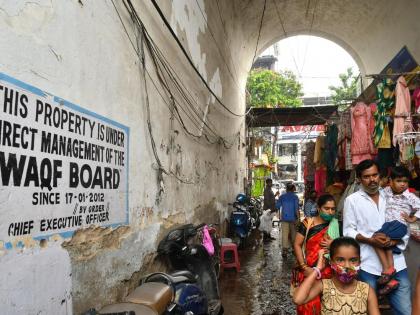Know All About the Impact Of BJP’s Waqf Amendment Bill on Property Management
By Lokmat English Desk | Updated: September 18, 2024 13:42 IST2024-09-18T13:41:37+5:302024-09-18T13:42:24+5:30
The Challenge of Waqf Property Claims One of the key challenges surrounding Waqf properties in India is the extensive ...

Know All About the Impact Of BJP’s Waqf Amendment Bill on Property Management
The Challenge of Waqf Property Claims
One of the key challenges surrounding Waqf properties in India is the extensive range of claims over various lands, including private and prime real estate. Many properties have been registered as Waqf without adequate documentation or the consent of original owners, resulting in a plethora of legal disputes and accusations of land grabbing. This situation raises serious concerns about the potential misuse of Waqf for personal gain.
Commercial Exploitation of Waqf Land
Another significant issue is the commercial use of Waqf land, which is often leased to private entities for profit-oriented projects, contrary to the charitable intent behind Waqf properties. This practice has drawn criticism from various groups, especially Hindu organizations, who argue that it undermines the altruistic nature of Waqf and enables unfair wealth accumulation.
The BJP’s Waqf Amendment Bill: A Step Forward
Under the leadership of Prime Minister Narendra Modi, the BJP has introduced proposed amendments to the Waqf Act aimed at addressing these contentious issues. The Waqf Amendment Bill seeks to implement stricter regulations, enhance transparency, and prevent the misuse of Waqf properties. It emphasizes the importance of ensuring that Waqf lands are utilized for their intended charitable purposes, mandating thorough verification of claims and imposing tighter controls on commercial activities. While some Islamic organizations oppose these reforms, supporters argue they are essential for curbing exploitation and ensuring equitable management.
Expected Changes with the 2024 Amendment
If enacted, these amendments could drastically reshape the governance of Waqf properties in India. Key proposals include mandatory verification of Waqf claims, tighter restrictions on the commercial use of Waqf land, and improved transparency within Waqf Boards. The aim is to reconcile religious rights with accountability and justice, addressing longstanding issues of mismanagement and corruption.
Congress and the Historical Landscape of Waqf Properties
Critics have also highlighted the Congress party's historical role in designating prime evacuee properties as Waqf during the Partition, which is perceived as a politically motivated strategy to appease minority communities at the expense of others’ rights. This legacy of manipulating land policies for electoral advantage has intensified calls for comprehensive reforms.
Inclusivity Concerns in Waqf Boards
The exclusivity within Waqf Boards has raised additional concerns, as these bodies have been criticized for their lack of representation of women, Bohras, and Aga Khanis in decision-making processes. This exclusion emphasizes the urgent need for reforms to promote fair and inclusive governance within Waqf institutions.
Public Response and Demand for Reform
The proposed amendments to Waqf management have garnered significant public support, particularly from Hindu organizations, leading to a wave of emails advocating for these changes. This collective voice reflects a growing demand for accountability and transparency in the administration of Waqf properties, signaling widespread backing for reform efforts.
Conclusion
The discourse surrounding Waqf properties in India transcends mere legal complexities, encapsulating broader political and religious dynamics. The BJP’s proposed Waqf Amendment Bill marks a pivotal effort to address misuse and ensure equitable management of Waqf assets. While opposition exists, the pressing need for reform is evident, with the government aiming to protect the cultural and religious fabric of India while advocating for justice across all communities.
Open in app